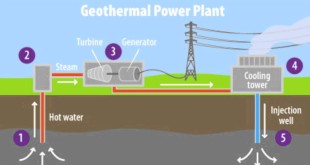Introduction
Every year, over 100 billion metric tons of bulk materials—equivalent to two-thirds the mass of Mount Everest—are transported around the globe using traditional conveyors and trucks. In today’s fast-paced, environmentally conscious world, achieving net zero emissions requires a radical transformation of supply chain processes. Bulk material handling technology is emerging as a key solution, enabling precise control over the horizontal and vertical movement of massive loads while delivering throughput capacities of thousands of metric tons per hour. This cutting-edge technology is set to revolutionize the way goods are moved, paving the way for more sustainable, efficient, and innovative logistics systems.
Advanced Control and High Throughput
Modern bulk material handling systems are engineered to offer unparalleled precision and speed. Unlike conventional methods that often rely on outdated mechanical systems, the latest innovations incorporate sophisticated sensors, real-time monitoring, and automated control systems. These advancements allow operators to precisely control the movement of large loads in both horizontal and vertical directions, achieving impressive throughput capacities capable of processing thousands of metric tons per hour. However, traditional bulk transport methods still face significant challenges, including high energy consumption, operational inefficiencies, and downtime due to mechanical limitations. These hurdles impact productivity and safety in critical industries such as mining, agriculture, and construction, emphasizing the urgent need for innovative, sustainable alternatives.
The future of bulk material handling lies in the seamless integration of advanced control systems, high-speed automation, and sustainable energy practices. By enabling the precise horizontal and vertical movement of massive loads at unprecedented throughput capacities, modern technologies are revolutionizing how industries transport bulk materials. As businesses innovate to meet net-zero targets and streamline their supply chains, embracing these advanced solutions will be key to creating more efficient, resilient, and environmentally friendly logistics networks for the future.
Innovative Applications Across Industries
The versatility of modern bulk material handling technology has opened up new avenues for its application across various sectors. In the mining industry, for example, these systems are used to move vast quantities of ore and raw materials from extraction sites to processing facilities, optimizing operations and reducing energy consumption. In agriculture, advanced conveyors and automated loading systems are streamlining the transport of grains, fertilizers, and other bulk products, ensuring that materials are delivered efficiently and with minimal waste. The construction industry benefits from these technologies through the rapid movement of aggregates and building materials, which accelerates project timelines and enhances overall safety on job sites. Each application demonstrates how precise control and high throughput capabilities can transform traditional supply chains into agile, high-performing networks.
Innovations Driving Sustainability
Sustainability is at the forefront of modern supply chain management, and bulk material handling technology is no exception. New innovations are not only focused on increasing efficiency but also on reducing the environmental footprint of material transport. Advanced energy management systems, integrated with renewable power sources, are being developed to minimize energy usage and cut down on carbon emissions. Moreover, the precision offered by these technologies reduces material losses and spillage, further contributing to sustainable operations. By optimizing the movement of bulk materials, businesses can significantly lower their reliance on fossil-fuel-powered trucks and conveyors, thereby advancing their journey toward net-zero emissions.
Recent breakthroughs, such as the innovative magnetic propulsion technology showcased by Wincanton and Magway, highlight the transformative potential of these advancements. By dramatically reducing energy consumption and operational costs while delivering exceptional control and capacity, such innovations are set to redefine bulk material handling and drive the logistics industry toward a more sustainable future.
Wincanton showcases innovative magnetic propulsion technology
Wincanton’s W² Innovation Centre in Rockingham, UK, is now showcasing a groundbreaking bulk material handling system that employs innovative magnetic propulsion technology. Developed by Magway Limited, this system enables precise control over both horizontal and vertical movements of loads up to 250kg and boasts an impressive throughput capacity of 1,000 metric tons per hour. By operating at less than 20% of the energy and operating costs of traditional conveyors and trucks while producing zero emissions, this technology represents a significant leap toward more sustainable and efficient supply chain processes.
The breakthrough comes at a time when achieving net zero is a critical goal for businesses globally, as traditional methods transport over 100 billion metric tons of bulk materials annually. Magway’s magnetic propulsion system offers a compelling alternative by drastically reducing energy consumption and operational costs. It marks the first demonstration of this technology outside a controlled test environment, underscoring its readiness for real-world applications. With industry leaders like Wincanton eager to collaborate on such innovations, this development is set to redefine bulk material handling, pushing the boundaries of sustainability and operational efficiency in logistics.
The Road Ahead
As global demand for efficient and sustainable logistics solutions continues to grow, the evolution of bulk material handling technology is set to play a critical role in reshaping supply chains worldwide. The combination of high throughput, precision control, and sustainable energy integration represents a transformative shift that can meet the increasing challenges of material transport. With industries under pressure to innovate in order to achieve environmental goals, these technological advancements will become indispensable, driving not only operational efficiency but also long-term sustainability in the movement of bulk goods.
Conclusion
 International Defense Security & Technology Your trusted Source for News, Research and Analysis
International Defense Security & Technology Your trusted Source for News, Research and Analysis

